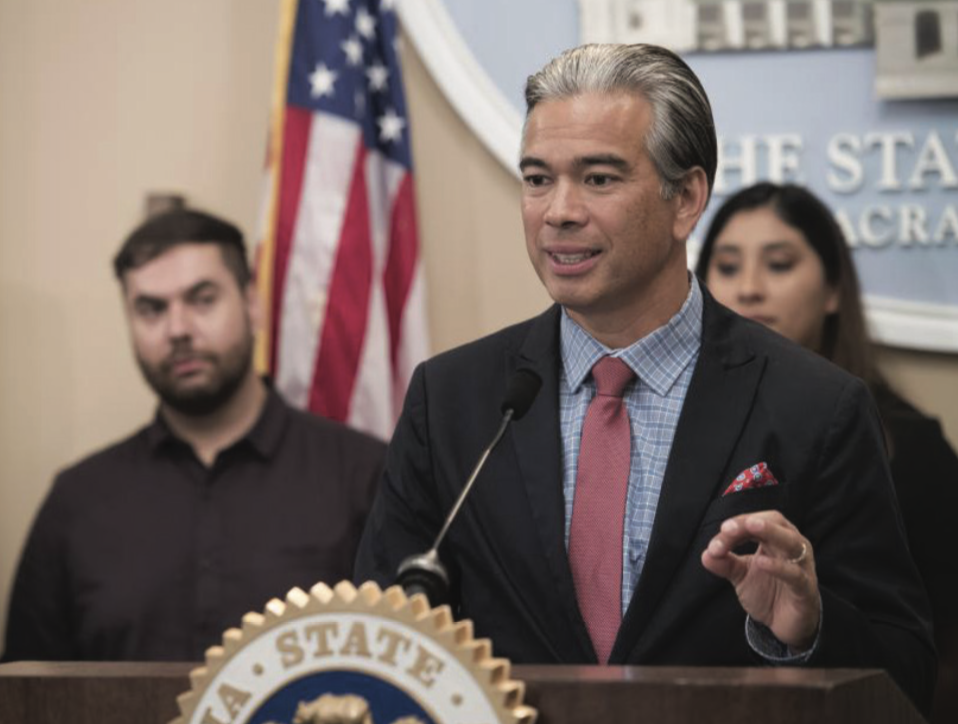
The fourth Democratic debate of the 2020 election occurred on Oct. 15 in Westerville, Ohio. It was moderated by CNN anchors Anderson Cooper and Erin Burnett and Times national editor Marc Lacey. Refinery29 reported in May that the Democratic National Convention (DNC) now requires 2020 debates to feature at least one woman and one non-White person.
Present at the debate were former Vice President Joseph Biden, Senators Elizabeth Warren, Bernie Sanders, Kamala Harris, Cory Booker, Amy Klobuchar, Mayor Pete Buttigieg, entrepreneur Andrew Yang, former Representative Beto O’Rourke, Former Secretary of Housing Julian Castro, Representative Tulsi Gabbard, and billionaire Tom Steyer. At 12 participants, this session had the largest stage of any presidential primary debate in American history.
At Mills, California Assemblyman Rob Bonta and Larry D. Magid, Professor of Practice of Public Policy, hosted a viewing session. Bonta represents District 18, comprised of the central East Bay, and a few communities south of Oakland. He has previously taught classes on California politics and policy at Mills, and intends to move to a more “one-on-one format”.
Bonta authored California Assembly Bill 32 and on Oct. 11, Governor Gavin Newsom signed it into law. After Jan. 1, the bill would ban California from entering or renewing contracts with private prison companies, and require the state to discontinue for-profit facilities by 2028.
“These are for-profit prisons being traded on Wall Street,” Bonta said, “In their line of work, people are commodities. To me, there’s nothing that can be more worse or wrong than that.”
Before the debate, Bonta commented that, out of the Democratic line-up, Sanders, Warren and Harris have all voiced their support for his goal of detention reform on Twitter.
Sanders, one of the most outspoken advocates of incarceration reform, tweeted in March, “No more private prisons and detention centers. No more profiteering from locking people up. No more ‘war on drugs.’ No more keeping people in jail because they’re too poor to afford cash bail.”
However, the topic of incarceration did not come up during the debate.
First, Cooper questioned the candidates on the topic of presidential impeachment and the whistle-blower complaint. The complaint alleges an abuse of office by President Trump through the solicitation of election interference from Ukraine. More specifically, this solicitation includes the president asking the Ukrainian President Volodymyr Zelensky for damaging information on former Vice President Biden.
Gabbard and Yang in particular stood out vocally against a partisan approach.
A survey conducted by the Public Religion Research Institute showed a clear partisan demarcation, indicating that although support for impeachment is rising among most Americans, Republicans remain nearly unanimously opposed to it.
“Electability is a big concern for me, even though I do want to be supportive of some of the younger candidates,” Mills assistant adjunct professor of Public Health Mi-Kyung Hong said. “It’s a battle for electability. What are your policies? What do you really have to offer us?”
Hong expressed more confidence in moderate candidates, who she believed would be palatable to a wider audience.
In contrast, Bonta, during the discussion stated that convincing conservative or swing voters with a more moderate approach was not necessary to win the election.
“Millenials are now all at voting age, and Gen Z is coming into presidential voting for the first time,” Mills freshman Maisie Glock said. “They’ve been really outspoken about issues like climate change and gun control. If we get them to the polls, Democrats could not just beat Trump but flip the senate as well. None of these moderates will do that. They don’t have the ability to excite young voters.”
Other topics of the debate included Syria and the Kurds, reproductive rights, automation, and whether or not billionaires should exist.
Throughout the evening, Elizabeth Warren appeared to sustain an onslaught of attacks from her opponents. For instance, Harris asked why Warren hadn’t joined her in support for a Twitter ban on the President, Buttigieg questioned Warren’s faith in the American public, and Klobuchar referred to her healthcare plan as a “pipe dream” while Biden called it “vague”.
For her healthcare plan, Warren supports Medicare for All, which would guarantee healthcare as a right to all people, including the undocumented, and effectively abolish private insurance.
When Lacey questioned Warren on whether she would pay for her healthcare plan by raising taxes on the middle class, Warren said that it would “lower costs”. Warren was criticized most notably by Klobuchar and later by multiple media outlets for what they considered dodging the question.
“Senator Warren didn’t talk about how she was going to pay for Medicare for All,” Hong said. “I agree with Amy Klobuchar. We have ObamaCare, which isn’t perfect, but you can add and change it.”
The New York Times reported that in Iowa on Oct. 20, Warren said she would commit to a detailed plan to finance Medicare for All, a plan which she has been working on for months and should be finished soon.
These attacks, however, also appeared to demonstrate Warren’s mantle as a front-runner, according to analysis by ABC News. Warren spoke more than any other candidate during the debate, including Biden, who laid low in the aftermath of the attention being placed on his son.
In terms of funding, Warren, Sanders, and Buttigieg exceed Biden by tens of millions of dollars, and according to national polls, Warren tails Biden by only a few points. Among liberals and Democrats under the age of 35, Warren beats Biden by nearly two to one.
“Remember Obama in 2008. People voted for him, and they never voted again,” Bonta said. “But they [did vote] for him. Inspiration goes a long way.”
